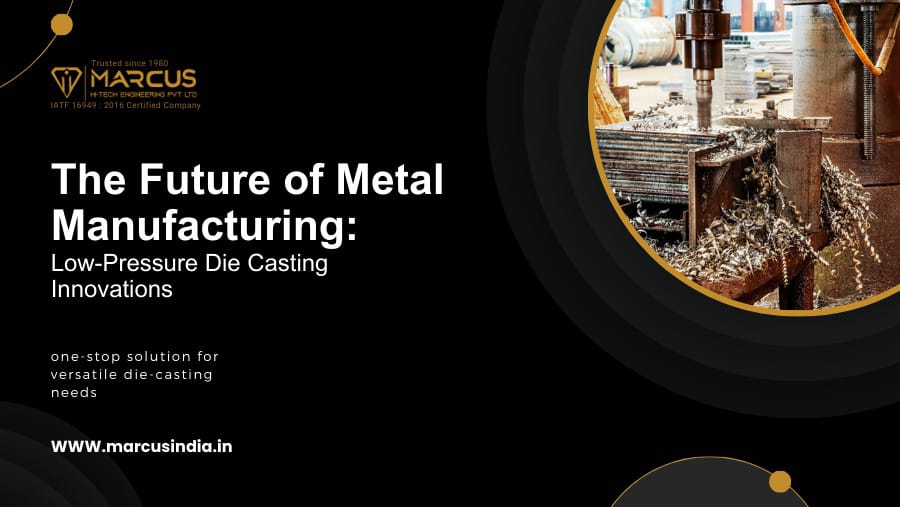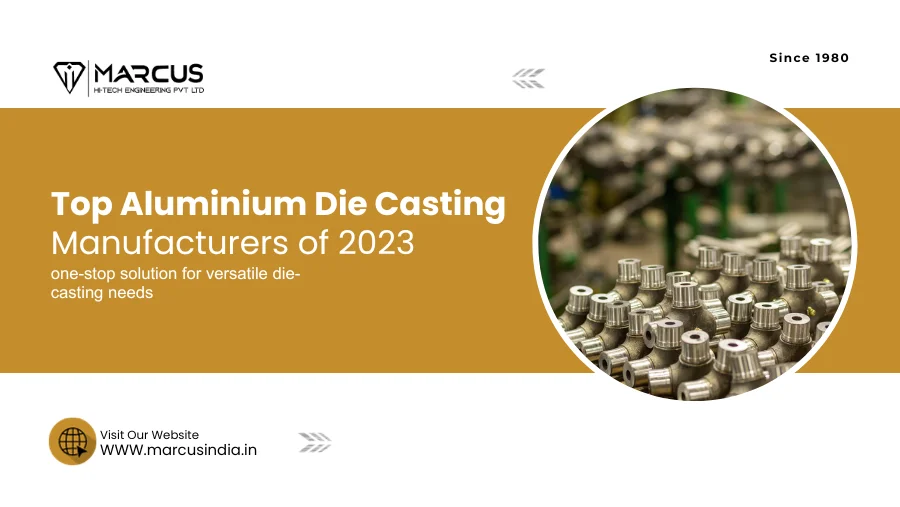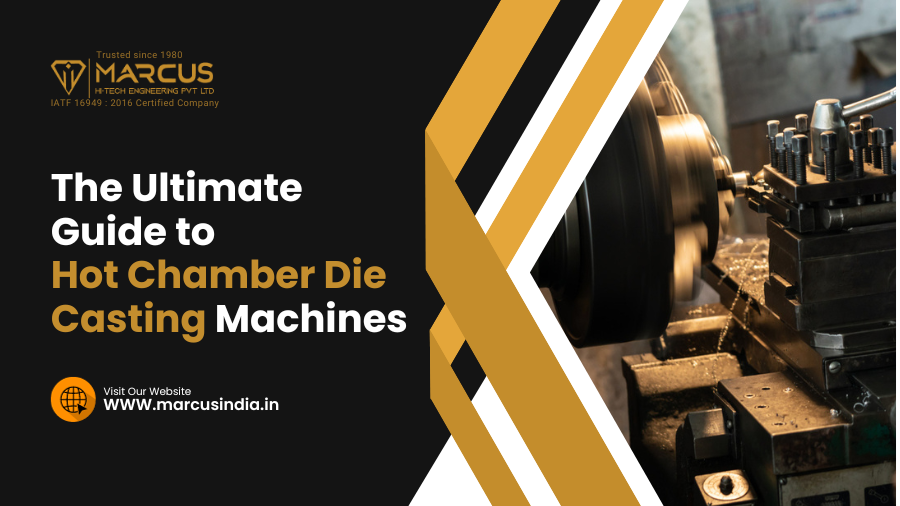
Die casting suppliers in India have witnessed remarkable growth in recent years, driven by the country’s robust manufacturing capabilities and the increasing demand for high-quality precision components. According to industry reports, the Indian die-casting market is projected to reach a value of USD 105.55 billion by 2028, at a CAGR of 6.24% (2023-2028), showcasing the immense scope and opportunities it offers. With such growth, selecting the right die-casting supplier becomes crucial for businesses looking to leverage the advantages of this thriving industry.
By understanding how to select the right supplier, you can make well-informed decisions that align with your project requirements, ultimately leading to the success of your manufacturing efforts.
Let’s delve into the crucial aspects that can help you select from the most suitable die casting suppliers in India, and maximize the benefits of the booming industry. But first, let’s discuss die-casting and its advantages.
Understanding Die Casting and Its Benefits
Die casting is a popular manufacturing method utilized in industries such as automotive, aerospace, and electronics. It entails injecting molten metal, typically aluminum, zinc, or magnesium, into a reusable mold, also known as a die. Upon solidification, the metal takes the shape of the die, producing intricately detailed parts with high precision and tight tolerances.

Benefits of Die Casting
Precision and Complexity:
Die casting offers exceptional precision, allowing manufacturers to produce intricate and complex components with consistent accuracy. The die itself acts as a template, ensuring repeatability in every casting. This level of precision is crucial for industries that require tight tolerances and intricate designs.
High Production Efficiency:
Known for its high production efficiency, high pressure die casting is a preferred choice for large-scale manufacturing. Once the die is created, the production process becomes faster and more streamlined. Industries with tight timelines and high demand benefit significantly from the ability to produce a large volume of components.
Cost-Effective:
The die casting process is a cost-effective manufacturing method, especially for high-volume production. The initial investment in creating the dies may be higher, but once the dies are made, the cost per unit decreases significantly. Additionally, the increased production efficiency reduces labor costs and minimizes material waste, contributing to cost savings.
Material Versatility:
Die casting supports various materials, including aluminum, zinc, magnesium, and various alloys. Each material offers unique properties, such as lightweight, high strength, corrosion resistance, and thermal conductivity. The ability to choose from different materials provides flexibility in selecting the most suitable material for specific applications. For example, aluminum die castings are typically used in the automotive industry due to its high strength.
Surface Finish and Aesthetic Appeal:
Producing components with smooth surface finishes and excellent aesthetic appeal gets easy with die casting. The molds used in die casting can create intricate details, textures, and logos on the surface of the cast parts, eliminating the need for additional finishing processes. This feature is particularly advantageous for industries that value visual appeals, such as consumer electronics and automotive.
Strength and Durability:
Die-cast components are highly durable and robust, making them ideal for demanding applications. The solidification process used in die casting results in a uniform and dense structure, which provides outstanding mechanical properties. These components can withstand extreme temperatures, pressure, and repetitive stress, ensuring long-term performance and reliability.
Key Factors to Consider When Selecting Die Casting Suppliers in India

Choosing the right die casting supplier in India requires a comprehensive evaluation of various factors to ensure a reliable and efficient partnership. Let’s delve into each of these factors in detail:
1. Industry Experience & Market Reputation
Opting for die casting suppliers in India with substantial industry experience and a strong market reputation is crucial. Consider suppliers with a proven track record and extensive experience in the field. An established supplier with a reputable market standing is more likely to have refined their processes, built a strong network of clients and suppliers, and gained valuable expertise in delivering high-quality die cast parts. Look for references or testimonials from previous clients to validate their industry experience and reputation.
2. Quality of the Supply
The quality of the die cast parts supplied by the manufacturer is of utmost importance. Evaluate the supplier’s quality control systems and certifications. Ensure they adhere to international quality standards, such as ISO certifications. Inquire about their inspection processes, testing capabilities, and measures taken to ensure defect-free products. Look for the die casting suppliers in India with robust quality control expertise provides consistent quality and reliable performance of the die cast parts.
3. Technical Expertise and Machining Excellence
Assess the supplier’s technical expertise and capabilities. A reliable supplier should have a team of skilled professionals well-versed in die casting processes, including mold design, material selection, and CNC machining. Their technical knowledge and experience contribute to better product design optimization, improved manufacturing efficiency, and enhanced part quality.
Inquire about their capabilities in handling complex geometries, thin walls, and tight tolerances, especially if your project requires such specifications. Ask for examples or case studies showcasing their technical expertise and machining excellence.
4. Quality Control Expertise
Apart from general quality control systems, evaluating the supplier’s expertise in quality control is essential. They should have a systematic approach to ensure consistent and reliable quality throughout production. Inquire about their methodologies for identifying and addressing defects, statistical process control (SPC) practices, and continuous improvement initiatives.
Die casting suppliers in India with a strong focus on quality control will provide you with confidence in the reliability and consistency of their products. Ask for details on their quality control processes and any certifications or accreditations related to quality management.
5. Manufacturing Capabilities
Evaluate the supplier’s manufacturing capabilities to determine if they can meet your specific requirements. Consider points such as the size and capacity of their facilities, the range of die casting processes they offer (e.g., hot chamber, cold chamber), and their ability to work with different alloys. Additionally, assess their capacity for volume production and flexibility to handle varying project sizes. Die casting suppliers in India with comprehensive manufacturing capabilities can accommodate your current and future needs—request information about their equipment, production capacity, and any specialized processes they offer, such as vibro polishing or shot blasting.
6. Technology and Innovation
To stay competitive in the die casting industry, suppliers must embrace technological advancements and innovation. Inquire about the supplier’s investments in modern die casting machinery, software, and automation. Die casting suppliers in India utilizing advanced technologies can offer improved efficiency, precision, and faster turnaround times for your projects. They should also stay updated with the latest industry trends and incorporate innovative practices to optimize the manufacturing process.
Ask about their technology adoption strategy and any recent advancements they have implemented.
7. Pricing and Cost Efficiency
While cost should not be the sole determining factor, it’s essential to consider pricing and cost efficiency when selecting a die casting supplier. Obtain detailed quotes from multiple suppliers and compare them based on factors such as quality, lead times, value-added services, and long-term partnership potential. Remember that the cheapest option may only sometimes provide the best quality or long-term reliability.
Look for die casting suppliers in India who offer competitive pricing without compromising on quality or customer service. Request a breakdown of the costs involved and seek clarification on any potential additional charges.
8. Customer Support and Communication
Effective and responsive customer support are vital for a successful partnership. Evaluate the supplier’s ability to provide timely and clear communication. Do they respond promptly to inquiries? Are they willing to address concerns and provide regular project updates? A supplier with excellent customer support can foster a strong working relationship and effectively address any issues that may arise during the project.
Inquire about their communication channels, escalation procedures, and project management practices.
9. Industry-Wise Requirement Capability
Consider whether the die-casting supplier has experience and expertise in your specific industry or application. Different industries may have unique requirements and standards. A supplier with industry-specific die casting knowledge and experience can better understand your needs and deliver tailored solutions. Inquire about their previous projects in your industry and their familiarity with relevant regulations and specifications.
Also Check: Exploring the Pressure Die Casting Industry in India
Over to You!

Selecting die casting suppliers in India requires careful consideration of several key factors to ensure a successful and fruitful partnership. By evaluating the factors mentioned above, you can make an informed decision as per the project requirements. While choosing, a supplier with extensive industry experience and a solid market reputation ensures that you are partnering with a trusted and reliable company, assessing the supplier’s quality control systems and certifications guarantees consistent and high-quality products.
Additionally, considering the supplier’s industry-specific capabilities ensures that they understand and can meet the unique requirements of your industry or application. Marcus Hi-Tech Engineering is a leading die casting supplier in India that aligns with your needs and delivers exceptional quality and precision for your manufacturing projects.
FAQs
There are four main types of die casting processes:
Hot Chamber Die Casting:
- In hot chamber die casting, the casting chamber is immersed in a pool of molten metal.
- It is primarily used for zinc, tin, and other low-melting-point alloys.
- This process is known for its speed and efficiency, making it suitable for high-volume production of small to medium-sized parts.
Cold Chamber Die Casting:
- Cold chamber die casting involves a separate furnace to melt the metal before it is injected into the die.
- It is suitable for casting metals with higher melting points, such as aluminum, brass, and magnesium.
- This method allows for better control of the casting process and is often used for larger and more complex parts.
Squeeze Die Casting:
- Squeeze die casting is a variation of the traditional die casting process.
- It involves applying additional pressure on the molten metal after it is injected into the die cavity.
- This extra pressure helps reduce porosity and improve the mechanical properties of the casting.
Semi-Solid Die Casting:
- Semi-solid die casting, also known as rheocasting, uses a partially solidified or “semisolid” slurry of metal.
- The metal is not completely liquid but has a globular structure.
- This process is suitable for producing high-strength and high-quality parts, especially for applications where structural integrity is crucial.
Die casting is commonly used to produce a wide range of products, including:
- Automotive parts: Engine components, transmission cases, and more.
- Consumer electronics: Phone and laptop casings, camera bodies.
- Industrial machinery: Gears, valves, and hydraulic components.
- Household items: Kitchen appliance parts, door handles.
- Toys and collectibles: Model cars, action figures, and more.
Die casting is versatile and suitable for various applications due to its precision and cost-effective production capabilities.
The capacity of die casting can vary depending on several factors, including the size and complexity of the parts being produced, the type of die casting machine used, and the specific alloy being cast. However, die casting machines typically range in capacity from a few tons to several hundred tons of clamping force. Smaller machines are used for producing small, intricate parts, while larger machines are used for larger and more complex components. It’s essential to choose the right machine size to match the project’s requirements for efficiency and quality.
The speed of die casting can vary depending on several factors, including the size and complexity of the part being produced, the type of die casting machine used, and the material being cast. In general, die casting is known for its fast production capabilities, with cycle times typically ranging from a few seconds to a few minutes. High-pressure die casting processes tend to be faster than low-pressure methods. It’s essential to consult with a manufacturer or die casting expert for precise speed requirements for your specific project.










